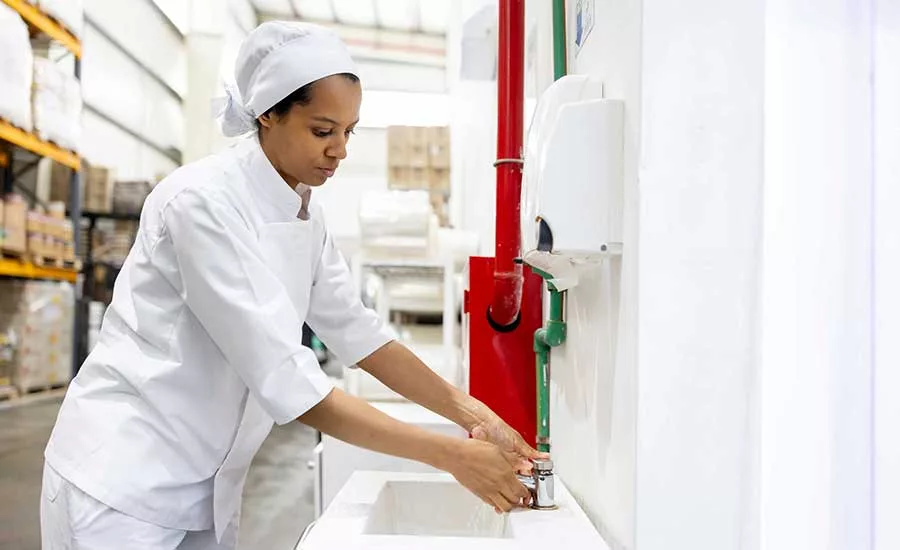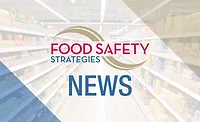Everyone Has the Right to Safe Food

Pixdeluxe/E+ via Getty Images
The food industry has faced enormous challenges over the past two years, with the pandemic changing the landscape of food safety dramatically. The world was already grappling with the challenge of feeding a growing global population of almost eight billion people safely and sustainably. We must shift to more sustainable production and consumption patterns, as well as make food systems less fragile and unequal; all while combatting food fraud and managing the impacts of climate change.
Now, the war in Ukraine has added even more pressure to food systems and resources. Global food prices are set to soar, and the supply of staples such as wheat from Russia and Ukraine are under significant pressure, given that the countries collectively account for one-third of the world's wheat exports, one-fifth of its corn trade, and almost 80 percent of its sunflower oil production.1 Disruption in supply inevitably leads to pressure on food security and safety—so, working across boundaries to ensure safe food everywhere has never been more critical.
In times of crisis, there is a risk of organizations across the supply chain becoming more introverted. For this reason, it is now even more important that we all look outward, not inward; we must embrace existing food safety standards and share expertise. At GFSI, we know that to rise to the scale of the global food safety challenges ahead, we need everyone pulling together. We are focused on enabling collaboration involving food retailers and manufacturers, suppliers, the agriculture industry, academia, governments, and many others globally.
In the struggle to maintain safe food reaching those who need it most, there is a temptation to cut corners. While some of this may be inevitable, we must maintain standards now to avoid additional future burdens. Addressing gaps in resources or skills through capability building is a huge part of what we do at GFSI, and we have developed tools to provide a pathway toward GFSI-recognized certification for companies or markets with less sophisticated food safety systems. Clarity and consistency around food safety is very important, and GFSI is working hard on capability building to help smaller businesses improve their food safety systems and gain market access.
To support this work and address the wider crisis, we also need even greater collaboration between the public and private sectors. We are leading a dialogue through the GFSI network of regulators and governments to provide greater recognition by regulators of private-sector food safety assessments. We have also created a new framework, our Government to Business forum, which sets out new levels of engagement and agrees to work together like never before to allow large-scale collaboration on food safety.
As part of this ambition, the GFSI Conference takes place March 29–31, bringing together 600 experts and business leaders from more than 50 countries to discuss shared food safety challenges and find ways to ensure greater action and impact. Following last year's virtual conference, it will be refreshing to come together in person again. My priority will be using the opportunity to share and learn with others across the industry. While many individuals, companies, and organizations share the goal of delivering safe food, the extensive collaboration and dialogues that are so critical to achieving it will be a key factor in this year's conference. By coming together, we can develop solutions to being more accurate in the information that is circulated with each other and with consumers. We can work together to increase traceability and transparency across the supply chain and communicate that to consumers.
The pandemic may have increased efficiencies in many ways around virtual collaboration; however, the issues we are facing now cannot be managed purely through new technologies. Nothing beats face-to-face collaboration. There is huge value in coming together in person, and we must share knowledge and gather competencies to address these risks. At GFSI, we want to lead by example by bringing the community together so that every company can and should be part of the journey to improving transparency in the food safety industry.
Everyone has a right to safe food—we are committed to making food safety everyone's business. In the current climate, we are calling on industry leaders from across the entire food sector to join us on this journey, and to reflect together on how we can go further to benefit consumers, businesses, employees, and the planet.
Notes
- According to the U.S. Department of Agriculture.
Looking for quick answers on food safety topics?
Try Ask FSM, our new smart AI search tool.
Ask FSM →








